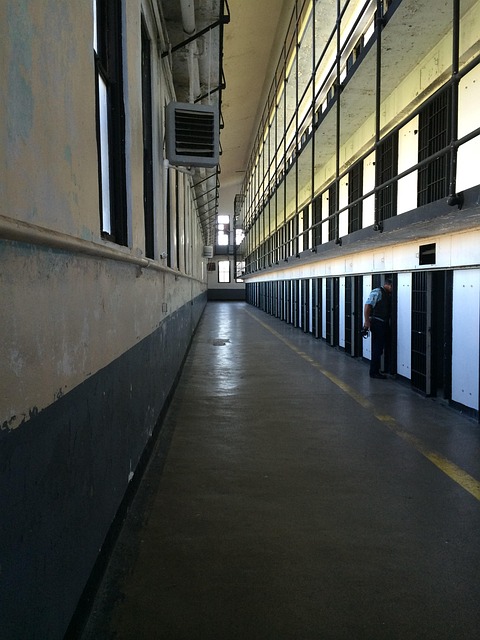Rural and urban areas face distinct challenges in enforcing DUI laws due to population density, resource availability, and support systems. While rural regions prioritize education and rehabilitation for teen drivers with fewer stringent penalties, urban centers implement stricter laws focused on deterrence, including harsher fines, license suspensions, and mandatory addiction treatment programs. The contrast underscores the need for region-specific approaches, emphasizing tailored strategies for both rural (e.g., community-based programs, remote monitoring) and urban (e.g., robust intervention centers, collaborative outreach) communities, with a strong emphasis on Teen Driver Rehabilitation.
In the rural-urban divide, distinct DUI (drunk driving under influence) laws emerge, shaping safety and justice. This article delves into the key differences between rural and urban DUI regulations, specifically focusing on their implications for teen driver rehabilitation programs. We explore challenges in equitable enforcement and present strategies to enhance safety nets for young drivers, emphasizing the importance of tailored support systems in both settings. Understanding these nuances is vital for fostering effective Teen Driver Rehabilitation initiatives nationwide.
- Understanding Rural and Urban DUI Laws: Key Differences
- Impact on Teen Driver Rehabilitation Programs
- Challenges and Considerations for Equitable Enforcement
- Strategies to Enhance Safety and Support for Young Drivers
Understanding Rural and Urban DUI Laws: Key Differences

In rural areas, DUI laws often reflect the lower population density and distinct community dynamics. These regions typically have fewer traffic enforcement resources, which can lead to less stringent regulations compared to urban centers. As a result, teens driving under the influence in rural settings might face different consequences, with a potential emphasis on education and rehabilitation programs rather than severe penalties.
In contrast, urban areas are characterized by higher population densities and more concentrated law enforcement efforts. Urban DUI laws tend to be stricter, focusing on deterrence and swift punishment. This can include harsher fines, license suspensions, and mandatory addiction treatment programs for teen drivers convicted of DUI, aiming to address the heightened safety concerns in densely populated regions.
Impact on Teen Driver Rehabilitation Programs

In rural areas, where communities are often smaller and more tightly knit, DUI laws may be less strictly enforced due to limited resources and lower crime rates. This can have implications for teen driver rehabilitation programs, which are crucial in educating young drivers about the dangers of impaired driving. With fewer incidents of DUI, there might be less incentive or urgency to invest heavily in such programs, potentially leading to fewer specialized services available for at-risk teens.
On the other hand, urban areas with higher rates of DUI often have more robust support systems and resources dedicated to teen driver safety. These include intensive rehabilitation programs, community outreach initiatives, and stringent laws that hold offenders accountable. Such measures can significantly impact teen driver behavior by deterring impaired driving and encouraging safer choices. This contrast in enforcement and resource allocation underscores the need for tailored approaches to address the unique challenges of rural and urban DUI prevention and education.
Challenges and Considerations for Equitable Enforcement

Enforcing DUI (Driving Under the Influence) laws in rural and urban areas presents distinct challenges that can impact their equitable application. One significant consideration is the varying population densities, which lead to differing access to resources and support systems. In urban settings, with higher populations, there are often more established intervention programs like Teen Driver Rehabilitation centers, making it easier to implement and reach at-risk youth. These areas also benefit from better infrastructure, allowing for quicker emergency response times. Conversely, rural regions face unique barriers; limited resources and longer response distances can hinder immediate assistance, potentially exacerbating the consequences of DUI incidents.
To bridge this gap, law enforcement agencies in rural communities are exploring innovative solutions, such as community-based educational programs and collaborative efforts with local businesses to promote responsible drinking. Additionally, integrating technology for remote monitoring and support has shown potential in teen driver rehabilitation, ensuring that at-risk individuals receive the necessary guidance regardless of their location. These strategies aim to ensure that DUI laws are enforced fairly, taking into account the unique circumstances and needs of each community.
Strategies to Enhance Safety and Support for Young Drivers

In rural areas, where distances between communities are often vast and populations sparse, addressing DUI (drunk driving) among young drivers requires a tailored approach. Strategies to enhance safety include implementing more robust teen driver rehabilitation programs that focus on hands-on training in low-risk environments, such as closed courses or simulated rural scenarios. These programs can help teens develop better judgment and reaction times behind the wheel.
Community involvement is also crucial. Rural communities can foster a culture of responsible drinking and driving by organizing events that promote safe transportation alternatives, like designated drivers or ride-sharing services. Additionally, partnerships between local law enforcement and schools can facilitate educational workshops on the consequences of DUI, targeting not just young drivers but also their peers and families to create a supportive network that discourages impaired driving.
In conclusion, understanding the distinct challenges posed by rural and urban DUI laws is crucial in shaping effective teen driver rehabilitation programs. While these environments differ significantly, both present unique opportunities for enhanced safety measures and supportive initiatives. By acknowledging and addressing these disparities, we can create more equitable and impactful rehabilitative strategies, ultimately fostering safer driving habits among young individuals, whether they hail from vibrant cities or tranquil countryside regions. This approach ensures that all teen drivers receive the necessary support to navigate the road with confidence and responsibility.






